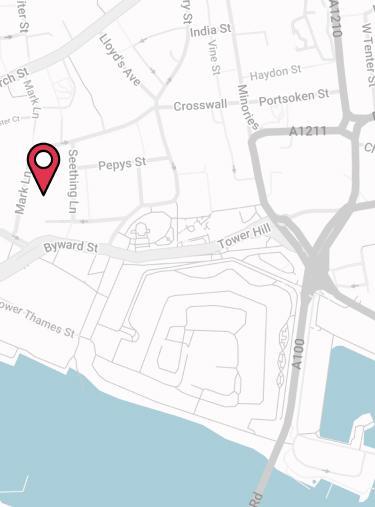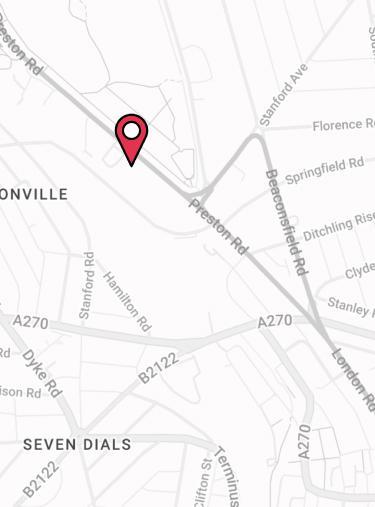As a doctor you’ll be used to treating people and helping them to get back on their feet. But have you stepped back to consider what happens to you if you’re unable to work due to accident or sickness? Could you cope financially?
This is where Doctors Income Protection comes into play. But what exactly is it and how does it differ from other types of Income Protection. In our complete guide below, we cover everything you need to know.
What Is Doctors Income Protection?
Income Protection for doctors will pay out a replacement income should you suffer an accident or sickness that prevents you from working. As a policy it aims to:
- Pay out a monthly tax-free income if anything medically prevents you from working as a doctor
- Cover your core outgoings – everything from your mortgage / rent, household bills and utilities to groceries and car running costs
- Protect between 50% and 70% of your pre-tax (gross) earnings depending on the insurer
- Cover you if you work as an employee for the NHS, as a locum GP, or as a partner in your own practice.
Why Is Doctors Income Protection Important?
Whether you work within the NHS, private sector, or a mix of both, you’ll know you’re only entitled to a set amount of sick pay.
Income Protection for doctors ensures that once this sick pay stops, you still get a regular monthly income. This can provide peace of mind, knowing that your monthly outgoings can still be covered.
SPECIALIST OPINION 🤓
“Income Protection is the one protection product every working UK adult should consider buying.” Which? Money.
How Does Doctors Income Protection Work?
Doctors Income Protection works in the same way as a standard Income Protection policy. The major difference is how the insurer pays out and the extras that cover doctors specifically. A policy tends to include NHS mirroring and HIV exclusions, which are exclusive to Income Protection for doctors.
If you pay for a policy on a monthly basis, then have to take sickness absence, your policy will pay out after a set amount of time (the deferred period). When you’re eligible to receive your policy benefits, it will continue to pay out each month for the benefit duration. This could be 2 or 5 years, or up until State Pension Age.
Policy Factors to Consider When Buying Doctors Income Protection
When setting up your policy there are a number of things you will have to consider. These include:
- The Level Of Cover You Need
Most insurers allow doctors to insure between 50% and 70% of their gross (pre-tax) earnings as a maximum. However, you may not need to insure yourself for the highest level of cover. It depends on your own situation.
- Your Deferred Period
The deferred period is the length of time you’ll need to be unable to work before claiming your benefits. Many insurers offer waiting periods of 4, 8, 13, 26, or 52 weeks. If you have savings to fall back on, you might not need to pick a 4 week deferred period, for example. It makes sense to avoid a short deferred period if you don’t need one.
- Policy Cease Age
This refers to the age you want your policy to end. It is usually set to a point in the future where you won’t need the cover anymore. This could be the year you expect to retire and have other financial provisions to fall back on, such as a pension. Some insurers will allow you to set the cease age as high as 70.
- Length Of Claims Period
When taking out cover you will get the choice of Short or Long Term Protection. Short-Term Income Protection will pay out for 1, 2 or 5 years in the event of a claim. Long-Term Income Protection on the other hand will continue paying benefits right up until you reach retirement age if you can never work again due to poor health.
The Type Of Premium
As well as the above policy options, you will also have to choose the type of premium you want. There are three options available when buying Doctors Income Protection insurance:
- Reviewable premiums
These can be ‘reviewed’ as the insurer sees fit. Premiums may rise in cases where the insurer has seen a spike in claims or based on economic factors. Such premiums will start out cheaper but are then reviewed upwards. They often work out more expensive over the life of the policy
- Age-banded premiums
Age-rated premiums also tend to work out cheaper to start off with, but then rise each year. Unlike reviewable premiums, age-banded premiums can only rise by a preset amount stated in your policy. These increases are solely linked to your age and the growing risk of you claiming as you get older
- Guaranteed premiums
Usually more expensive initially, however, the cost is fixed from the outset. Guaranteed premiums tend to work out cheaper during your active policy. This is especially true if you bought cover when you were young and healthy.
The Importance Of ‘Own Occupation’ Cover
There are three main definitions of incapacity insurers use to decide whether a successful claim can be made:
- Own occupation
Covers you in your specific job role as a doctor. If you can’t do the day-to-day activities involved in your job due to accident or sickness, you can make a claim on your Income Protection policy
- Suited occupation
Covers you only if you can’t do your own occupation or any occupation that you’re suited to. For example, while a surgeon with a hand injury couldn’t work as a surgeon, they may not be able to claim because they’d still be well enough to teach medicine
- Any occupation / work tasks
This is the most difficult definition of incapacity to claim on. You’ll only be able to claim if you’re so unfit to work you can’t work in any job or perform a series of daily living tasks.
It’s important as a doctor to ensure you get the right definition on your policy. You’ll want an Income Protection plan that covers you in your own occupation. This definition of incapacity will pay out for any illness or injury that medically prevents you from doing your duties as a doctor.
What Does Doctors Income Protection Cover?
Income Protection for doctors protects against any medical eventuality that prevents you from working. So, we know what Doctors Income Protection is, but what does it cover? It will cover things such as:
- Accidents and bodily injuries
- Sickness and periods of ill health.
Unemployment Cover
Some providers will also allow you to add cover for unemployment to your Doctors Income Protection. Otherwise known as Redundancy Insurance, Unemployment Insurance is short-term cover against the risk of forced unemployment. It pays out a monthly income for a maximum of 1 or 2 years if you lose your job through no fault of your own.
If you work as a doctor through your own practice, we tend to avoid this type of cover for our clients at Drewberry. If you’re your own boss, it’s hard to prove redundancy.
Does Doctors Income Protection Cover Pre-Existing Conditions?
All insurers ask questions about your health when you apply for Doctors Income Protection Insurance. Providers want to know about any health conditions you’ve had in the last 5 years. If you disclose any pre-existing health conditions, the insurer might:
- Cover your illness on standard terms (you won’t face any difference in the cost of premiums or policy terms than a healthy person)
- Cover the condition for an additional premium
- Exclude the condition but offer a date at which it will consider reviewing the exclusion
- Exclude your illness entirely (perhaps with a premium discount to compensate).
If you have a pre-existing health condition that you’re concerned will impact your eligibility for Doctors Income Protection, we recommend speaking to a specialist adviser. Our team of specialists can discuss your options with you and help you get the cover you need.
Are There Any Exclusions?
As with most insurance policies, Income Protection for doctors has a few standard exclusions that apply to everyone. Most policies don’t pay out for an illness or injury sustained:
- In pursuit of criminal activity
- From illegal / illicit drug use, substance abuse or alcohol misuse
- During foreign travel to areas of active internal conflict, high terrorism risk, political instability or countries the Foreign and Commonwealth Office (FCO) has advised against visiting.
Excluding the above, most insurers base coverage on your pre-existing history. However, working as a doctor is a physically and mentally demanding role. For that reason, many Income Protection plans for doctors don’t cover mental health conditions due to the higher risk associated with the job.
Can locum GPs get Income Protection?
Yes, you can get Income Protection as a locum GP. There are various ways to secure Income Protection depending on the way you work. In our experience, locum GPs either work for themselves or through a medical practice.
Self-Employed Income Protection might be of interest to locum GPs working through their own limited company. If you’re a self-employed locum GP, it’s likely you won’t benefit from NHS sick pay or receive any sick pay at all. Here, the limited company setup can own and pay for the policy, which offers significant tax savings over paying for the policy individually.
Otherwise, if you work as a locum employed by a medical practice, then you can take out Income Protection in the regular way as if you were employed directly by the NHS. Before taking out cover in this situation, though, it’s best to check what you may be entitled to first.
Will Income Protection match my NHS sick pay?
If you work for the NHS, you’ll likely get more generous sick pay than most other staff.
Given the NHS pays a maximum of 6 months full pay and 6 months half pay as sick pay depending on your length of service, you can set your Income Protection deferred period to match this and reduce premiums considerably.
This is known as an NHS sick pay mirroring deferred period and is offered by a number of the top UK providers we work with. It’s a bespoke option for NHS professionals only.
Does Doctors Income Protection cover HIV?
As a medical worker, you’re potentially more at risk of developing HIV at work due to exposure to needle stick injuries.
Income Protection for doctors has specific clauses to cover HIV contracted in a work setting through needle stick injuries, so you’ll be covered if this should occur.
Policy Features Specifically For Doctors
Some insurers offer features specifically for medical professionals (doctors / surgeons) which include:
- No HIV/AIDS exclusions if contracted through a workplace incident
- NHS sick pay mirroring, allowing you to extend your deferred period and save money aligning with the sick pay you get from the NHS
- Overseas cover if your work takes you abroad
- Sabbatical cover, where you can ‘pause’ the policy if you decide to work, study or volunteer abroad.
NHS Sick Pay Mirroring
If you are a newly qualified or junior doctor with the NHS, your sick pay entitlement will increase with every year of service. This is usually up to 6 months full pay and 6 month half-pay after 5 years of service. After 5 years, you reach your maximum sick pay allowance.
Liverpool Victoria’s Doctors & Surgeons Income Protection Cover, for example, will pay a partial benefit when you stop receiving your full sick pay from the NHS to top up your half sick pay. This happens regardless of how long your deferred period is. So, you can set your deferred period as 12 months and reduce your premiums without sacrificing cover.
You can align your deferred period with your NHS sick pay entitlement, which is why it’s known as NHS Sick Pay Mirroring. When your NHS sick pay stops entirely and your deferred period ends, your insurer will begin paying out your full Income Protection benefits.
Sabbatical Cover
Some Income Protection insurers also accommodate sabbaticals by allowing policyholders to take breaks of up to 2 years from their policy. This time can be used to study or work abroad, with policyholders still covered as long as they have a UK bank account.
If you move anywhere in Europe, USA, Canada, Australia or New Zealand and certain other industrialised nations, you can keep your payout on a long-term basis.
Do I Need Doctors Income Protection?
Whether or not you need Doctors Income Protection depends on your circumstances. However, you should weigh up the risks involved in having no protection and consider how you’d cope without insurance.
The Incapacity Risk…
The risk of illness or injury is higher than many people think. For example:
Could I Use My Savings?
While some people have enough savings put by if they ever had to take several weeks off sick, this isn’t true for everyone. For example:
With this in mind, it’s easy to see that if unable to work due to sickness or illness many people would be unable to cope financially.
What About State Benefits?
The main government benefit if you’re unable to work due to illness or injury is Employment and Support Allowance (ESA). This can be up to £84.80 per week for the over-25s. For many people, this wouldn’t make much of a dent in their pressing financial needs if they couldn’t do their job.
While other state benefits are available, your eligibility for them depends on the severity of your disability and other circumstances. Even if you are entitled to them, they rarely replace all your lost income.
What About NHS Sick Pay?
It’s true that NHS doctors, surgeons, nurses, midwives and other such workers get generous sick pay from their employer.
After 5 years of service, the NHS offers up to 6 months off with full pay and 6 months with half pay if you’re ever ill or injured.
This is more than many other employers offer, but still might not be enough. Could you maintain your outgoings when your income halves?
And after 12 months, when the NHS stops paying out entirely, what happens then? As medical professionals, you no doubt see the real-life consequences of severe, long term illness, injury and disability every day and are well aware of such risks.
How Much Does Income Protection For Doctors Cost In 2023?
When calculating the cost of Income Protection, your monthly premiums will depend on a variety of personal and policy factors.
To help give you a better idea of how much you could end up paying for Doctors Income Protection we’ve provided some examples below. These are based on a healthy 30 year old wanting:
- A benefit of £2,000 a month
- A 13 week deferral period
- The policy to cease at age 65
- Long-term cover
- Guaranteed premiums which won’t increase over the life of the policy.
Provider
Each provider will view risk differently. What one considers high risk, another might not. As a result the cost of cover will vary from provider to provider. We’ve provided an example below based on the above criteria.
Age
The older you are at the start of your plan, the higher your premiums. This is due to the increased risk of sickness or injury as you age.
Below are some example quotes for doctors of differing ages. You can see the price per month change as you age.
Current State of Health / Pre-Existing Medical Conditions
An insurer may increase your premiums if you have a health condition or simply exclude that condition outright. Pre-existing conditions are often excluded due to the long-term treatment and medication needed, which would increase the cost for the insurer.
Smoker Status
Smokers are more likely to get ill, and to become seriously ill at that. As smoking has detrimental health impacts, most insurers charge more.
Here’s an example of the difference in cost per month between a policy for a non smoker and a smoker.
Doctors Vs Surgeons
Insurers view some roles as riskier than others, such as surgeons. This is down to the dexterity they need in their hands and the ability to stand and concentrate for operations.
A minor illness or injury is therefore more likely to stop a surgeon operating, more so than a GP. Surgeons have a higher risk profile than many other medical roles. For this reason, policies for surgeons generally cost more than for doctors.
We’ve put together a rough idea of how much Income Protection costs for doctors and surgeons of three ages.
Save Money By Reviewing Your Income Protection Policy
Even if you already have an Income Protection policy, it might be worth comparing quotes to check you’re still getting the best deal. Many of our clients have had doctors Income Protection with the same provider since medical school and haven’t touched the policy since.
Not only could better or cheaper cover be available to you, but your circumstances have likely changed since you started your career in medicine. Get in touch to see if you could get a better deal on a policy more suited to your needs. You can speak to one of our specialist advisers by calling 02084327333 or via email at help@drewberry.co.uk.
Alternatively, you can check out our Income Protection quote tool to compare costs from all the leading UK insurers.
How To Claim On Doctors Income Protection
The following steps offer a basic overview of making a claim on Doctors Income Protection:
- You suffer an accident or sickness that stops you working
- Contact your insurer as soon as this happens
- Fill in a claims form — most providers let you do this online. You’ll need evidence of your disability, for example, a doctor’s note. You may also have to prove your income immediately prior to your illness
- Wait out your policy’s deferral period. After your NHS sick pay ends, if you still can’t do your job, the insurer starts paying out your full benefits
- You receive benefits until you recover and return to your job, reach your claims limit (for short-term protection) or reach your cease age (for long-term cover).
Neil’s Cancer Claim With British Friendly
Neil took out Accident and Sickness Insurance with British Friendly via Drewberry. He had the plan for 4 years before needing to claim.
He became unwell with pains in his stomach. After visiting his GP and having some tests, Neil was diagnosed with stage 2 bowel cancer. He needed surgery and therefore had to claim while having his operation and during his subsequent recovery. View Neils story 👇.
Which Income Protection Providers Pay The Most Claims?
All Income Protection providers publish their claims statistics each year. This will give you a good idea of which are most likely to pay out if you need to make a claim.
Payout statistics alone should not be used to decide which insurer offers the best income protection. Instead, payout rates should be used as a rough guide to compare successful claims across the industry as a whole.
Our specialist in-depth review of each of the UK's leading providers
Compare UK’s Best Income Protection For Doctors In 2023
The Income Protection market is incredibly competitive, meaning you have a range of providers to choose from. As such, it’s important to compare Doctors Income Protection quotes from every major provider in the UK to ensure you get the right coverage at the best price.
In addition to the individual product reviews below, you’ll benefit from reading our specialist guide comparing the policy terms of all the best Income Protection providers.
Specialist Policies For Doctors And Other Medical Professionals
General Income Protection Providers
Additional Benefits & Support Services
Another important area some of our clients have often overlooked is the additional benefits offered by various insurers. These are services available, almost always for free, alongside your policy.
Insurers include extra benefits in your policy with your overall wellness in mind. These aim to help reduce the chances of you needing to claim or to speed up your recovery if you do suffer an accident or period of illness resulting in a claim.
Depending on your provider, extra benefits may include:
- Remote GP appointments
- Helplines offering convenient telephone access to trained doctors and nurses for advice on minor illnesses / injuries
- A fixed number of physiotherapy sessions per year (either online or in person)
- A fixed number of counselling / cognitive behavioural therapy sessions per year (either online or in person)
- High street discounts
- Discounts on gym memberships / fitness trackers
- Hospitalisation benefit, paying out a cash benefit each day you spend as an inpatient in hospital due to accident or sickness
- Second medical opinion service, providing access to world-leading specialists to offer a second opinion on a diagnosis or course of treatment.
Many of these services are available not only to you as the policyholder but also your immediate family, such as your spouse / civil partner or dependent children.
Compare Doctors Income Protection Quotes & Get Specialist Advice
As a doctor, there are a number of specialist income protection policies available to you. This includes policies with a deferred period that matches any sick pay you’re entitled to. To ensure you get it right, don’t hesitate to contact us today.
If you’d like extra help from one of our financial advisers to set up your cover, call us on 02084327333 or email help@drewberry.co.uk.
Why Speak to Us?
When it comes to protecting yourself and your finances, you deserve first-class service. Here’s why you should talk to us:
- There’s no fee for our service
- We’re an award-winning independent insurance broker, working with the leading UK insurers
- You’ll speak to a dedicated specialist from start to finish
- 4100 and growing independent client reviews rating us at 4.92 / 5
- Claims support when you need it most
- We’re authorised and regulated by the Financial Conduct Authority. Find us on the financial services register.



























